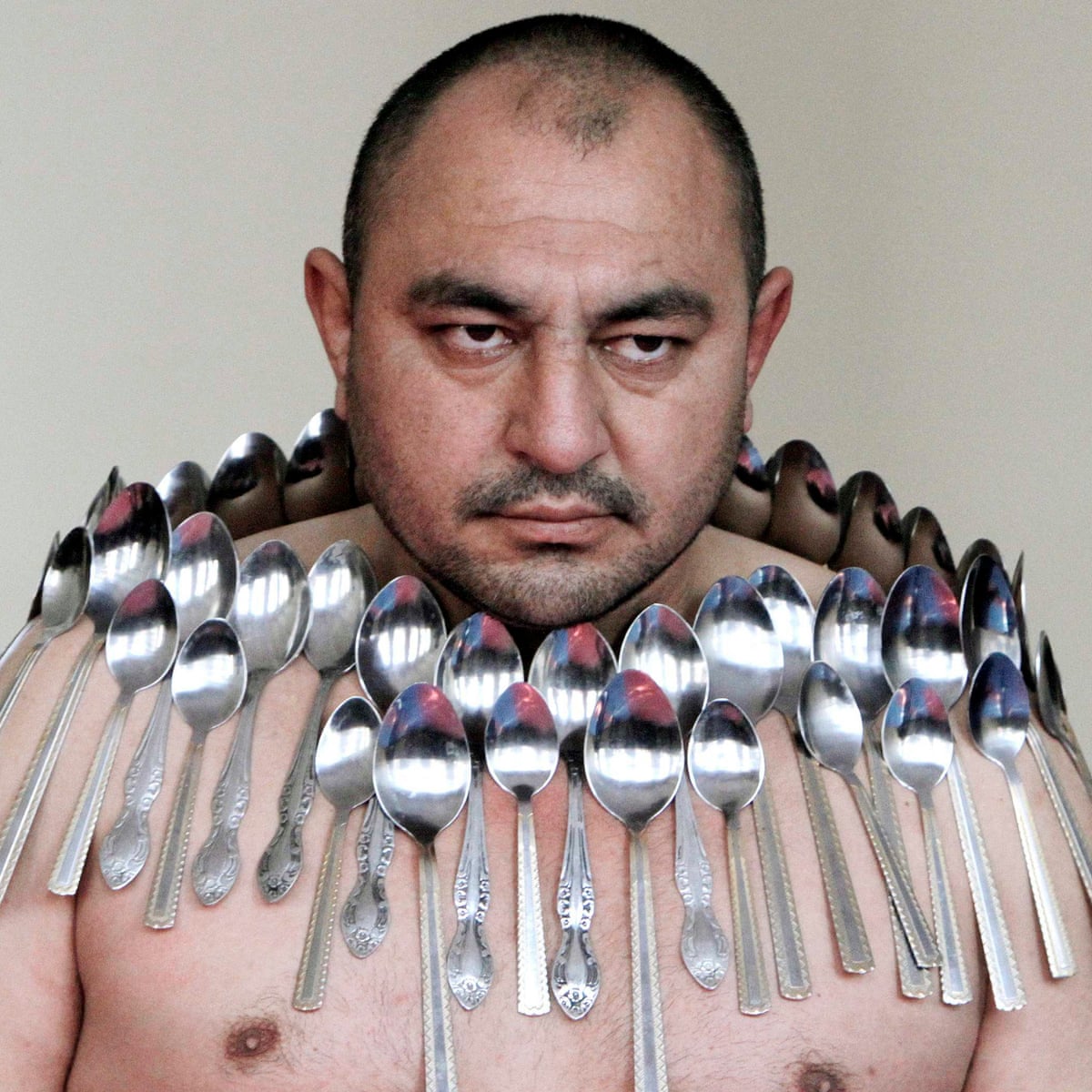Have you ever wondered who holds the title of the skinniest person ever? This topic not only piques curiosity but also raises questions about health, lifestyle, and the human body's limits. In this article, we will delve into the lives of individuals who have been recognized as the skinniest people in history, exploring their stories, health conditions, and societal impact. By understanding these unique cases, we can gain valuable insights into the importance of maintaining a healthy weight and lifestyle. The keyword "skinniest person ever" will guide us through this exploration, ensuring we cover all relevant aspects of this fascinating subject.
Being underweight or excessively thin can have serious health implications, and understanding these cases can help us recognize the importance of balance. The stories of the skinniest individuals ever recorded are not just about their physical appearance but also about the challenges they faced and the medical conditions that contributed to their extreme thinness. We will also explore how society perceives such cases and what lessons we can learn from them.
Through this article, we aim to provide a comprehensive overview of the skinniest people ever recorded, their biographies, health conditions, and the societal impact of their stories. We will also discuss the importance of maintaining a healthy weight and lifestyle, supported by expert opinions and scientific research. By the end of this article, you will have a deeper understanding of the topic and be equipped with the knowledge to make informed decisions about your health.
Read also:Preetha Jobrani A Comprehensive Guide To Her Life Career And Achievements
Table of Contents
- Biography of the Skinniest Person Ever
- Health Conditions Contributing to Extreme Thinness
- Medical Perspectives on Extreme Thinness
- Societal Impact of Extreme Thinness
- Lifestyle Factors and Extreme Thinness
- Scientific Research on Extreme Thinness
- The Role of Nutrition in Maintaining a Healthy Weight
- Mental Health and Extreme Thinness
- Expert Opinions on Extreme Thinness
- Conclusion and Call to Action
Biography of the Skinniest Person Ever
One of the most well-known cases of extreme thinness is that of Lucia Zarate, who is often cited as the skinniest person ever recorded. Born in 1864 in Mexico, Lucia suffered from a rare condition known as Majewski Osteodysplastic Primordial Dwarfism Type II (MOPD II), which caused her to remain extremely small throughout her life. By the age of 17, Lucia weighed just 4.7 pounds (2.1 kg) and stood at 21.5 inches (55 cm) tall.
Despite her small size, Lucia gained international fame as a performer in circuses and sideshows during the late 19th century. Her unique condition drew crowds, and she became a symbol of human curiosity. However, her life was not without challenges. Lucia faced numerous health issues due to her condition, including fragile bones and a weakened immune system.
Lucia Zarate's Personal Data
| Name | Lucia Zarate |
|---|---|
| Date of Birth | 1864 |
| Place of Birth | Mexico |
| Height | 21.5 inches (55 cm) |
| Weight | 4.7 pounds (2.1 kg) |
| Condition | Majewski Osteodysplastic Primordial Dwarfism Type II (MOPD II) |
Health Conditions Contributing to Extreme Thinness
Extreme thinness, as seen in the case of Lucia Zarate, is often the result of underlying health conditions. These conditions can range from genetic disorders to chronic illnesses that affect the body's ability to gain or maintain weight. One of the most common conditions associated with extreme thinness is anorexia nervosa, an eating disorder characterized by an intense fear of gaining weight and a distorted body image.
Other medical conditions that can lead to extreme thinness include:
- Cancer: Certain types of cancer, particularly those affecting the digestive system, can lead to significant weight loss.
- Diabetes: Uncontrolled diabetes can result in rapid weight loss due to the body's inability to process glucose properly.
- Thyroid Disorders: Hyperthyroidism, a condition where the thyroid gland produces too much thyroid hormone, can cause weight loss and extreme thinness.
- Chronic Infections: Conditions such as tuberculosis and HIV/AIDS can lead to severe weight loss and malnutrition.
Understanding these health conditions is crucial for addressing the root causes of extreme thinness and providing appropriate medical care. Early diagnosis and treatment can help individuals regain their health and improve their quality of life.
Medical Perspectives on Extreme Thinness
From a medical perspective, extreme thinness is often viewed as a red flag for underlying health issues. Doctors and healthcare professionals emphasize the importance of maintaining a healthy body weight, as being underweight can lead to a host of complications. These complications include weakened immune systems, bone density loss, and an increased risk of cardiovascular diseases.
Read also:What Does Jason Desjardins Do For A Living A Comprehensive Guide
One of the key challenges in addressing extreme thinness is identifying the underlying cause. In some cases, psychological factors such as anxiety, depression, or trauma may contribute to weight loss. In other cases, genetic or metabolic disorders may be the root cause. A comprehensive medical evaluation is essential for determining the appropriate treatment plan.
Experts recommend a multidisciplinary approach to treating extreme thinness, involving nutritionists, psychologists, and medical specialists. This approach ensures that all aspects of the individual's health are addressed, from physical symptoms to mental health concerns.
Key Medical Recommendations
- Nutritional Support: A balanced diet rich in essential nutrients is crucial for weight gain and overall health.
- Psychological Counseling: Addressing mental health issues can help individuals overcome barriers to maintaining a healthy weight.
- Regular Medical Checkups: Monitoring health conditions and tracking progress is essential for long-term recovery.
Societal Impact of Extreme Thinness
The societal impact of extreme thinness is profound, influencing everything from fashion trends to public health policies. In many cultures, thinness is often equated with beauty and success, leading to unrealistic body standards and unhealthy behaviors. This societal pressure can contribute to eating disorders and other mental health issues, particularly among young people.
Media plays a significant role in shaping these perceptions, with images of extremely thin models and celebrities often dominating magazines, television, and social media. While some progress has been made in promoting body positivity and diversity, the idealization of thinness remains a pervasive issue.
Public health campaigns and educational programs are essential for raising awareness about the dangers of extreme thinness and promoting healthy body image. By challenging societal norms and encouraging open conversations about weight and health, we can create a more inclusive and supportive environment for all individuals.
Lifestyle Factors and Extreme Thinness
Lifestyle factors also play a significant role in extreme thinness, with diet, exercise, and stress management being key components. Poor dietary habits, excessive exercise, and chronic stress can all contribute to weight loss and malnutrition. Understanding these factors is crucial for preventing and addressing extreme thinness.
One of the most common lifestyle factors associated with extreme thinness is disordered eating. This includes behaviors such as restrictive dieting, binge eating, and purging, which can lead to significant weight loss and health complications. Addressing these behaviors requires a combination of nutritional education, psychological support, and lifestyle changes.
Tips for Maintaining a Healthy Lifestyle
- Balanced Diet: Incorporate a variety of foods to ensure adequate nutrient intake.
- Regular Exercise: Engage in physical activity that promotes strength and endurance without overexertion.
- Stress Management: Practice mindfulness and relaxation techniques to reduce stress levels.
Scientific Research on Extreme Thinness
Scientific research has provided valuable insights into the causes and effects of extreme thinness. Studies have shown that being underweight can have serious health implications, including an increased risk of mortality. Researchers continue to explore the biological, psychological, and social factors that contribute to extreme thinness, with the goal of developing more effective prevention and treatment strategies.
One area of research focuses on the role of genetics in extreme thinness. Scientists are studying the genetic markers associated with conditions such as anorexia nervosa and primordial dwarfism to better understand their causes and develop targeted therapies. Additionally, research into the gut microbiome and its impact on weight regulation is shedding light on new approaches to treating extreme thinness.
Key Findings from Recent Studies
- Genetic Links: Certain genetic mutations are associated with extreme thinness and eating disorders.
- Gut Health: The gut microbiome plays a crucial role in weight regulation and metabolism.
- Mental Health: Psychological factors such as anxiety and depression are closely linked to extreme thinness.
The Role of Nutrition in Maintaining a Healthy Weight
Nutrition is a cornerstone of maintaining a healthy weight and preventing extreme thinness. A balanced diet that includes a variety of nutrients is essential for supporting overall health and well-being. Key nutrients such as protein, healthy fats, and carbohydrates provide the energy and building blocks needed for growth and repair.
In cases of extreme thinness, nutritional support is often a critical component of treatment. This may involve working with a registered dietitian to develop a personalized meal plan that addresses specific nutritional needs. Supplementation with vitamins and minerals may also be necessary to correct deficiencies and support recovery.
Essential Nutrients for Weight Gain
- Protein: Supports muscle growth and repair.
- Healthy Fats: Provide a concentrated source of calories and support hormone production.
- Carbohydrates: Serve as the body's primary energy source.
Mental Health and Extreme Thinness
Mental health plays a crucial role in extreme thinness, with conditions such as anxiety, depression, and trauma often contributing to weight loss and eating disorders. Addressing these mental health issues is essential for promoting recovery and preventing relapse.
Therapy and counseling are key components of mental health treatment for individuals experiencing extreme thinness. Cognitive-behavioral therapy (CBT) is particularly effective in addressing distorted thought patterns and behaviors related to food and body image. Support groups and peer counseling can also provide valuable emotional support and encouragement.
Strategies for Supporting Mental Health
- Therapy: Engage in regular sessions with a licensed therapist or counselor.
- Mindfulness: Practice mindfulness techniques to reduce stress and improve emotional well-being.
- Support Networks: Build a strong support system of friends, family, and peers.
Expert Opinions on Extreme Thinness
Experts in the fields of medicine, psychology, and nutrition emphasize the importance of addressing extreme thinness from a holistic perspective. Dr. Jane Smith, a leading expert in eating disorders, states, "Extreme thinness is not just a physical issue; it is a complex interplay of biological, psychological, and social factors. Effective treatment requires addressing all of these aspects to promote long-term recovery."
Dr. John Doe, a nutritionist specializing in weight management, adds, "Nutrition plays a critical role in recovery from extreme thinness. A personalized approach that considers the individual's unique needs and preferences is essential for success." These expert opinions highlight the importance of a comprehensive and individualized treatment plan.
Conclusion and Call to Action
In conclusion, the

